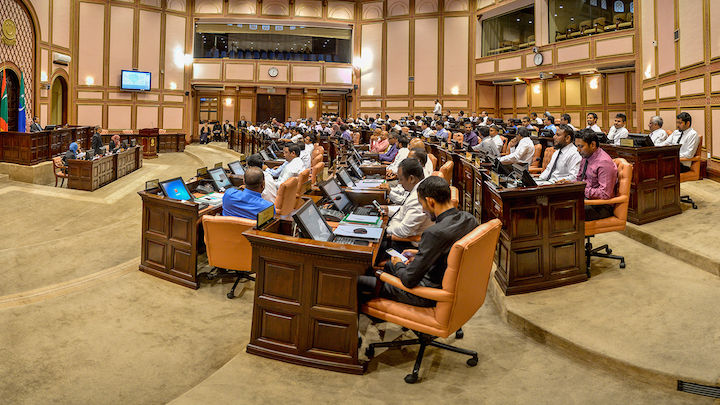Parliament approves MVR26.7bn budget for 2017
The parliament passed with a 60-vote majority on Thursday the MVR26.7 billion (US$1.7 billion) budget proposed for 2017, approving the government’s spending plans and revenue raising measures without any revisions.

25 Nov 2016, 09:00
The parliament passed with a 60-vote majority on Thursday the MVR26.7 billion (US$1.7 billion) budget proposed for 2017, approving the government’s spending plans and revenue raising measures without any revisions.
Along with 45 MPs of the ruling Progressive Party of Maldives and six from its coalition partner Maldives Development Alliance, five Jumhooree Party MPs, Adhaalath Party MP Anara Naeem, and Deputy Speaker ‘Reeko’ Moosa Manik also voted to pass the budget.
Ahead of the vote, opposition MPs submitted several amendments to increase funding for schools, the family protection authority, and the centre for disabled people.
But the pro-government majority voted against all 18 amendments.
Become a member
Get full access to our archive and personalise your experience.
Already a member?
Discussion
No comments yet. Be the first to share your thoughts!
No comments yet. Be the first to join the conversation!
Join the Conversation
Sign in to share your thoughts under an alias and take part in the discussion. Independent journalism thrives on open, respectful debate — your voice matters.




